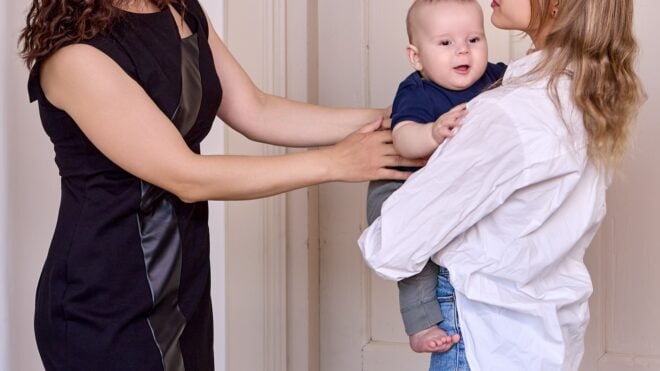
China

Birthday celebrations in China are reserved for only certain milestones, generally — a person's 1st, 10th, 60th and 70th. A child's first birthday is thought to be quite important, as what happens on that day is thought to influence his or her entire future. The parents will place the baby in the center of symbolic objects such as coins, books and dolls, and whichever item a child reaches for first is considered an indication of his or her path in life. (If they pick a coin, it is thought they'll be wealthy; a book means they will be learned; a doll might mean a big family.)
For the party itself, friends and relatives are invited for lunch, and extra-long noodles are served to wish the birthday child a long life.
Mexico

A baby's first birthday is greeted with much joy in Mexico. The day begins with the family singing songs, the lyrics of which wish the baby great blessings in life. A piñata filled with sweet treats like candy, cookies and cakes is hung over the baby, so that when it is cracked open, all of the treats shower down on the birthday baby. The many goodies are meant to symbolize God's blessings that are given to the child.
Korea

Much like China's tradition, Korean babies celebrating their first birthdays will be surrounded by significant objects and whatever they reach for first is thought to be especially telling. The child is dressed up, and a range of things — including fruit, rice, calligraphy brushes and money — are placed within their reach. What they choose to grab is supposed to predict their future.
Choosing a mirror might mean that they will grow up to be vain, rice connotes wealth, calligraphy brushes indicate a thirst for knowledge. After the item-picking ceremony, the birthday baby and guests eat sweet rice cakes.
India

In the Hindu tradition, a baby's head is shaved on his or her first birthday. This is thought to cleanse the child from any past-life wickedness as well as refresh their souls. After this, the baby is brought to a shrine where prayers are said and the child is blessed. In the afternoon, there is a celebratory meal of curry with chutney. Dessert is a sweet treat known as dudh pakh, a rice pudding seasoned with cardamom and studded with pistachios, almonds and raisins.
Nigeria

In this African nation, the 1st, 5th, 10th and 15th birthdays are thought of as the most significant. To mark such occasions, an enormous feast — often including an entire roasted cow or pig — is prepared, and everyone the family knows is invited. In addition to the roasted meat, Nigerians celebrate by preparing jollof rice — a dish made with rice, red peppers, onions, tomatoes and a local sweet potato.
Japan

The Japanese prefer to celebrate "growing one year older" rather than the term "birthday." Western-style birthday cakes have made their way to this island nation, though sweet rice cakes (mochi) are still more popular. A baby's first birthday is very important in Japan, and the sweet treat plays a big role in the tradition.
A specially prepared birthday mochi, which weighs about 4 pounds, is strapped onto the baby's back. As the child tries to toddle around with the cake on his or her back, parents nudge them so that they take a light fall. This is thought to prepare children for the ups and downs of life.
Egypt

On a baby's first birthday, most families throw a bash called a "hafla," where they invite family and friends to the home. Symbols of life and growth are the main decorations, so the home is filled with fruit and fresh flowers. There is dancing, singing and general merriment — though birthday cakes and cards are not part of traditional Egyptian birthday celebrations.
Germany

This European country's traditions are very close to those here in the U.S. On a baby's first birthday, as on any family member's birthday, someone will wake at sunrise to light a special birthday candle as well as a candle for each year of their life. The candles are left to burn all day, and the celebration comes in the evening. Once dinner is eaten, a happy birthday song is sung, and the birthday baby (and maybe some helpers) blow out the candles. Gifts are then opened and the party begins.
Vietnam

In general, Vietnamese people don't celebrate their birthdays on the anniversary of their arrival into the world. Instead, everyone celebrates their day of birth on Tet, which is the morning of the Vietnamese New Year (the first day of the first month in the lunar calendar, generally in late January or early February). So, a baby is considered to be age 1 on the first Tet to take place after their birth. On children's birthdays, family and close friends give babies and kids red envelopes that contain lucky money, known as "li xi."



